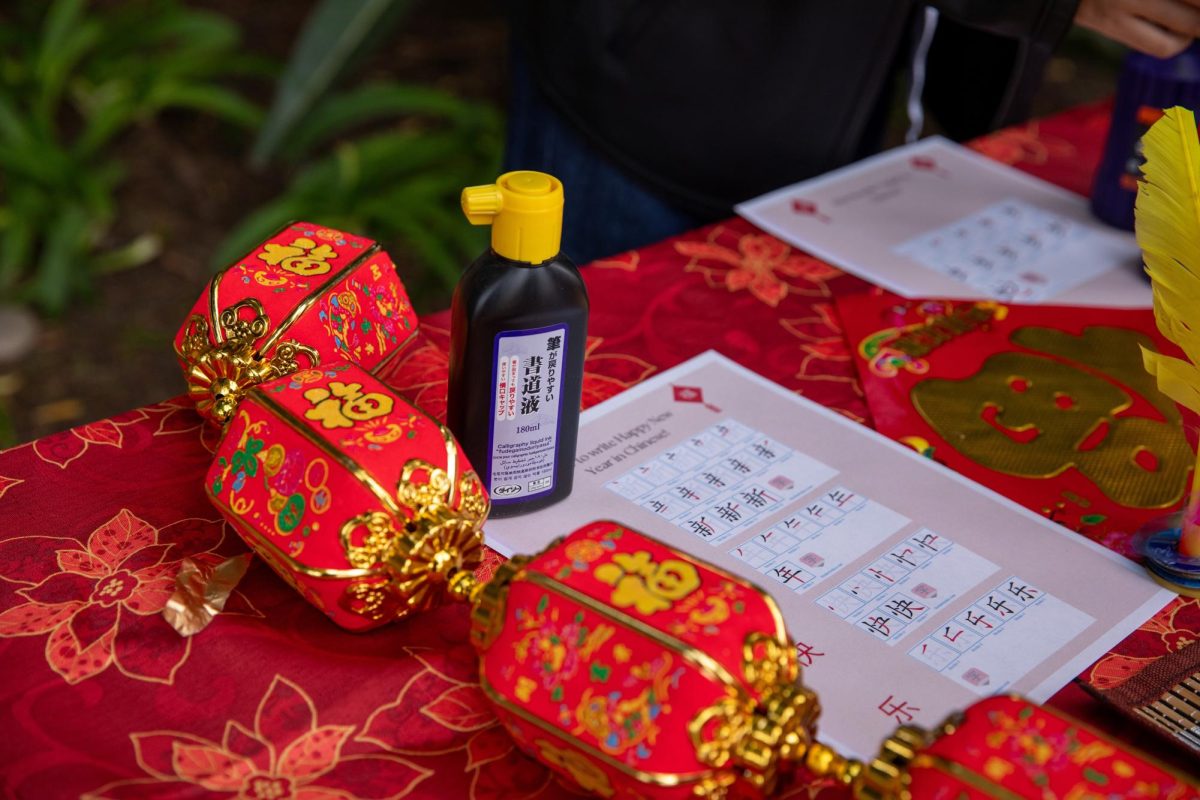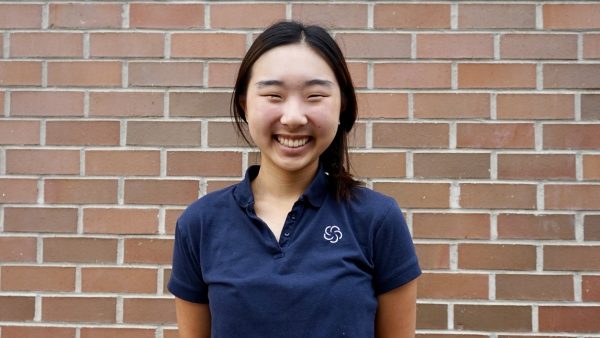I FaceTimed my grandma on Lunar New Year’s Eve. I was unable to stay on the call for long, as I had to finish a math problem set, prepare for a science lab and finalize my research proposal for Chinese class. Yet, I could not help but wonder how meaningful it would have been if I could have spent time with my grandma on an evening when Chinese families traditionally came together to bond.
When I look back on my memory of Lunar New Year’s Eve this year, I wonder how many of my classmates also had to hang up on their grandparents to spend time on schoolwork — committed to improving their grades rather than familial bonds. I say this because Asian American students form some of the largest affinity groups on campus — like Chinese+, KASA, SAAG, SEAPI and TAG.
In fact, even USA Today, a mainstream American news outlet, recognizes that Lunar New Year “is the most important holiday in China and many other Asian communities.” According to National Geographic, these Asian communities include Vietnam, North Korea, South Korea, Malaysia and Singapore. The Timothy S. Y. Lam Museum of Anthropology at Wake Forest University states that Lunar New Year “includes a week of official public holiday” because it is “the most important celebration for families” in China.
“I think a lot of people think that Lunar New Year is like a one day celebration,” Chinese+ LIT Katy Zhen ’26 said. “But there’s a lot leading up to it. It’s basically a full week and you not only spend time with family, but you clean your whole house. Sometimes, for certain families, they visit their dead ancestors and go to the cemetery, and there’s a lot that goes into it.”
We need to acknowledge that the cultural significance of Lunar New Year does not magically dissipate for Asian families upon moving to the U.S.
At Casti, we can encourage students to engage and embrace their ethnic cultures by stopping classes, in turn preserving a diversity of perspectives and fostering belonging. In fact, we are already spreading cultural awareness…though, just for some members of the Casti community. For instance, on March 14th, we did not have school because of Purim and Holi. Next year, students will receive days off on Yom Kippur, Diwali and Eid al-Fitr.
Yet, why can’t Asian students be allowed a day off on Lunar New Year?
Other schools have already begun to recognize Lunar New Year. School districts in Philadelphia and San Francisco — merely 40 minutes away from Casti — closed their schools on Lunar New Year this past year. Most significantly, this year, New York became the first state to close schools for this holiday. Governor Kathy Hochul explained this decision in a Facebook post, writing that “for too long, our AAPI community had to celebrate after work or school.” New York Assemblymember Grace Lee wrote in an Instagram post, that “students across the state [would] be able to celebrate the holiday with their families without missing school.” She added how this policy was personally meaningful to her, as she had to skip school as a student to celebrate Lunar New Year.
Hearing Lee’s perspectives made me reconsider my own Casti experience — I have never yet met a student whose family decided to pull them out of school to celebrate Lunar New Year. Yet, the level of academic rigor at Casti raises a new question: how many Casti students feel unable to engage in an important cultural holiday — essentially reconnect with their families — because they are too scared of falling behind in school?
“Most commonly, if a Chinese holiday falls on a weekday, I often have homework or a test to study for, so instead of spending the day with family, I might only eat dinner with them before going back to doing homework,” Chinese+ Lead Norah Yang ’25 said over an email interview. “This can force me to miss out on cultural traditions, such as dumpling making on Lunar New Year, simply because I don’t have time in my day to do it. In addition, traditionally, most Chinese holidays are supposed to be celebrated with family and friends. Much of my family is in China, so I obviously am not able to visit them during these holidays either.”
Zhen’s family also lives in China; she said that if she was given several days to visit her family for Lunar New Year, she would take the opportunity. “In high school, especially in junior, sophomore year, you’re so busy,” Zhen said. “Even for really important circumstances, I’m not able to go back and visit my family, and it’s definitely really hard.”
By not acknowledging Lunar New Year as a school holiday, Asian students may feel as if we need to assimilate or choose between our Asian and American identities. Even presenting at Upper School meeting is not enough to recognize Asian culture. But, choosing to pause classes on an important cultural holiday communicates to Asian American students that our experiences are valued at school. It also spreads visibility of Asian culture, prompting school-wide reflection and awareness on this day.
“I feel like at times if we’re at Upper School meeting and talking about how Lunar New Year is about spending time with family, but we’re not actually able to spend time with family, it’s kind of ironic,” Zhen said. “So, which one do we value more?”
While it is possible that closing school on Lunar New Year can serve as an avenue for other students of different racial or ethnic backgrounds to demand recognition of their culturally important holidays, this, inherently, comes with an issue of choosing which cultural holidays to recognize. If Castilleja recognized all holidays, students would rarely attend school. If we only recognized some, we would be accused of cultural insensitivity.
Yet, I believe it is important for school administration to adapt to the amount of student diversity. We can recognize holidays that are celebrated by the majority of students, which can be quickly discovered through a simple student survey.
Castilleja pledges that its commitment to teaching and learning antiracism “is an ongoing process that includes reviewing and revising our programs and practices, so that assimilation is not an expectation.” Let us commit to this practice of continual growth. Let us expand the policies at school so that they encompass the wide range of student perspectives within our community, promoting inclusion by encouraging students to engage with their cultural history and traditions. For one, I sure hope that I can stay on a call with my grandma next Lunar New Year’s Eve.



